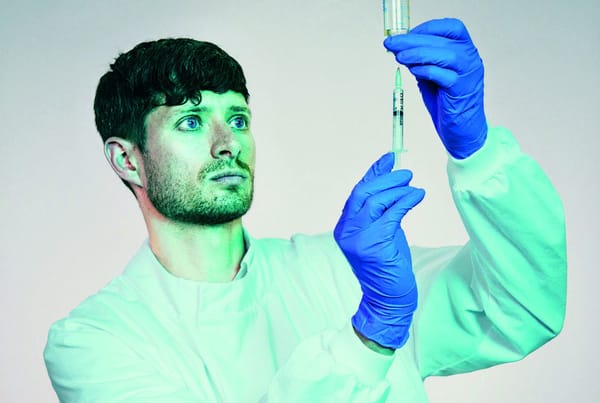The ultimate hangover cure
Emma Lisle on a drug that could end those mornings after

Could hangovers be a thing of the past? Scientists from the University of Huddersfield have developed a new drug that could reduce the side effects of binge drinking. The compound, called ethane-beta-sultam, is a taurine ‘pro-drug’ that can easily enter the blood stream before being processed by the body. Professor Mike Page, Dr Karl Hemming and colleagues believe that taking the drug during a heavy night of drinking will prevent alcohol from damaging the brain.
The study, published in the Journal of Alcoholism and Drug Dependence, involved scientists administering ethane-beta-sultam to rats on a binge-drinking regime. Usually, high levels of alcohol impair the brain by inducing inflammation and cell loss. However, these effects were reduced in mice that had been given the drug.
Ethane-beta-sultam works by reducing the number of excess glial cells that the brain produces. Taking it when drinking high levels of alcohol can prevent the death of brain cells that are important for navigation and orientation.
Binge drinking can lead to memory loss and long-term damage of the brain, especially in teenagers, whose brains are still developing. Consuming 6 units of alcohol for women, or 8 units for men (4 glasses of white wine or 3.5 pints of lager) is considered as having a binge.
Ethane-beta-sultam is a breakthrough compound as it overcomes a major obstacle in the treatment of neurological conditions. The drug is capable of crossing the blood-brain barrier. This serves as the body’s mechanism to shield the brain from toxic compounds, but makes it difficult to deliver medication to the brain.
There is likely to be controversy if ethane-beta-sultam is approved, as there are fears it could lead to an increase in binge drinking. Despite shielding the brain, the drug offers no protection to the rest of the body, such as the liver. Prescribing ethane-beta-sultam may also fail to tackle deeper issues, such as alcohol-dependence. However, Professor Page believes it could help to lessen the damage that alcoholics do to their brains whilst they try to quit, saying:
‘If you accept that alcohol abuse is going to continue, then it might be sensible for society to try and treat it in some way.’
The drug’s has been part of a 10 year collaboration between 11 scientists across the UK, Belgium and Italy. Research is ongoing in the hope that compounds even better than ethane-beta-sultam could be produced. It is possible that with further development, similar drugs could be used to treat a range of neurological conditions such as Dementia and Alzheimer’s disease.









